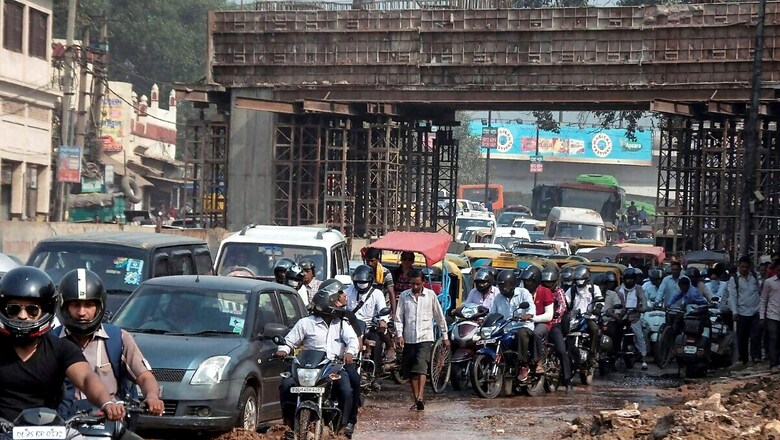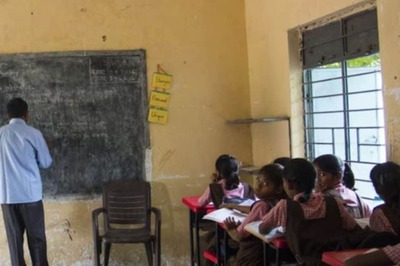
views
Potholes have been a major issue on Indian roads, proving fatal in many instances. To address the problem, the Ministry of Road Transport and Highways (MoRTH) is planning to give preference to Build-Operate-Transfer (BOT) mode in contacts for all future roads and will engage young engineering graduates for repair and maintenance of highways that need immediate attention, News18 has learnt.
Speaking to News18, a ministry official said most of the times, roads need simple and small patch repair. “These are not very complex jobs and do not require a lot of machines or manpower. We are planning to bring a model wherein young engineering graduates will be given this task,” the official said on condition of anonymity.
The bidding will be as usual, but those who are recently graduated will be given preference. “The policy is being finalised and it is still a work in progress. We will aim to engage small firms or young individuals who can get these simple tasks done,” the official added.
Another official told News18 that the idea is a win-win situation for both the ministry and the graduates. “While the young minds will get on field experience and will get a stipend, it will be cost effective for the ministry,” the second official said.
They explained that the new graduates will gain practical knowledge of road building and issues related to it, making it a valuable learning experience. Second, the ministry will get the work done at a cheaper cost.
Citing cost examples, the second official quoted above said: “If we hire a working engineer for the job, they will charge Rs 1 lakh. This will increase the overall coast. But with students, this can be done in just Rs 10,000.”
“We are all engineers and we know what a stipend means. Any decent amount used to motivate us. And obviously this will add to their CVs as well,” the official said.
These graduates will also be incentivised for the maintenance of these highways.
“On checking, if no potholes are found, they will be given a particular amount and if there are potholes, the amount will be deducted,” the official said.
As a long-term solution to ensure that there are no potholes on highways, the ministry is planning to give more preference to build-operate-transfer (BOT) mode of contracts.
There are two major contact modes for roads besides BOT — engineering, procurement and construction (EPC) and the hybrid annuity model (HAM).
Under the BOT model, a private player is granted a concession to finance, build and operate a project for a specified period of time. The developer recoups the investments by way of user charges or tolls charged from commuters, thereby taking on a certain amount of financial risk.
In the EPC model, private players construct the road and have no role in the road’s ownership, toll collection or maintenance. HAM is a combination of EPC and BOT models.
The official explained that the roads built under the EPC mode require maintenance quite early and its responsibility lies with MoRTH or the National Highway Authority of India. On the other hand, under the BOT mode, contractors build the road knowing that they have to take care of it for the next 15-20 years.
“We have realised that it is better for us if we go for BOT mode. For the EPC mode, we need to issue short and long term maintenance contracts depending on the needs,” the official said.

















Comments
0 comment